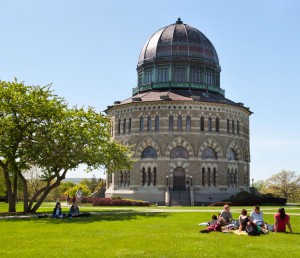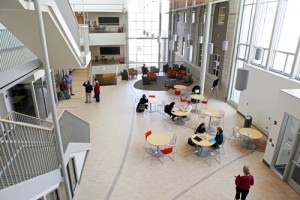Union College, September 26-27, 2013
THATCamp Humanities + Engineering is coming together, with new developments all the time! The current draft of the schedule is online, and we’re excited about the sessions planned. Registration is open.
In the meantime, be thinking about all the ways that the humanities and engineering can intersect / tease / connect / overlap / converse / interfere / play an awesome game of PONG with each other. We’ll be talking about all of those issues and more this September.
Be sure to check back regularly, and follow us on twitter: @UnionTHATCamp

Nott Memorial, Union College

Wold Center Atrium, Site of TC H+E



